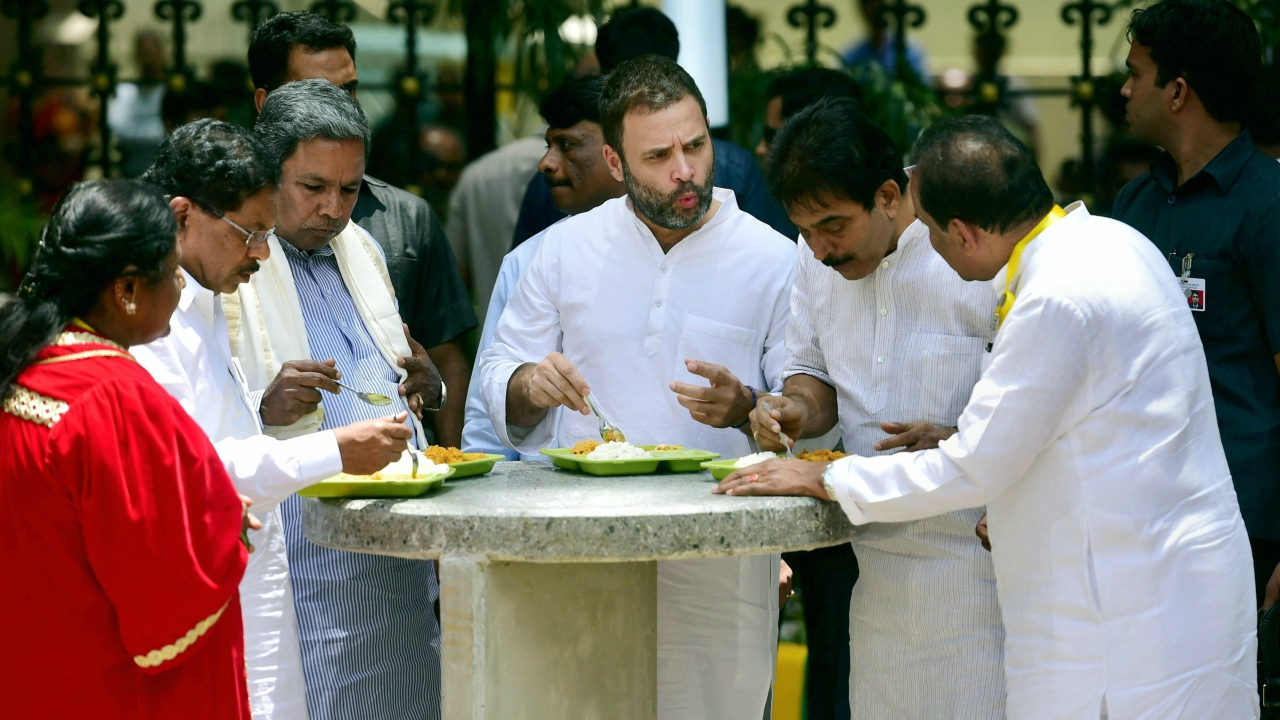As the date of the Karnataka assembly polls nears, the political heat of the election season can be felt across political centres of power. A win in the state for the ruling party could be another step towards the vision of ‘Congress-mukt Bharat’ which the BJP has envisaged. On the other hand, a win for Congress could be a big morale booster ahead of general election in 2019.
The outcome of the assembly election will be a verdict on five-years of work undertaken by the incumbent Siddaramaiah government. And, it certainly will be the litmus test for a number of social welfare schemes his government launched and/or ran.
A state-wide survey conducted by the Association for Democratic Reforms and Daksh reveals that the much-hyped Indira Canteen Scheme - food joints opened in the cities of Karnataka to serve extremely economical (read: subsidised) food - has not been perceived by the public as intended.
The scheme was started following the success of Amma Canteen in Tamil Nadu. The Indira Canteens served over one crore meals within the first two-and-a-half month in Bengaluru.
Only 31 percent of the people surveyed said that they were happy with the scheme. 36 percent of the respondents said that they were unhappy with the scheme. One-third of the respondents answered that they had not availed the scheme ever.

The flagship scheme was inaugurated by Congress president Rahul Gandhi last year in August.
The Anna Bhagya Scheme, however, launched in the first year of the Siddaramaiah government which promises up to 30 kg of rice to each family below poverty level (BPL) at Rs 1 per kg has a largely favourable response from the residents of the state. An overwhelming 79 percent of the respondents affirmed that they were happy with the pro-poor scheme while 14 percent said they were not happy. Six percent of the respondents said they had not availed the scheme.
Launched in 2006, the Cycle Bhagya Scheme, a legacy of the previous governments also has a positive perception among the general public. Nearly two-thirds of the people participating in the survey said that they were happy with it, while one-fourth of them said they were unhappy. 13 percent of the respondents said they did not avail it.
Under this scheme, high school girl students are provided bicycles free of cost so that they can commute from their home to the school. The scheme run by various state governments under different names was introduced to curb the dropout rates from schools.
Similarly, Krishi Bhagya scheme, which aims at efficient management of rainwater to improve agriculture productivity was also received largely positively by the state’s farmers. 58 percent of the respondents who availed the scheme said they were happy with it whereas 25 percent gave it a thumbs down. 17 percent of the respondents did not avail the scheme.

Karnataka Chief Minister and his government's handling of social welfare schemes will be under test when the state goes to vote on May 12.
The recently launched Anila Bhagya Scheme, a state government plan to provide LPG connection and cooking toolkits to BPL households was received positively by people of Karnataka with two-thirds of them being happy with it. 23 percent people were unhappy and 14 percent of the respondents did not avail the scheme.
Shaadi Bhagya scheme, a five-year-old government plan which provides aids to financially backward religious minority women has an approval of just 16 percent of the respondents. 45 percent of the respondents expressed their happiness with the scheme. 40 percent of the respondents said they did not avail the scheme.
Though it is hard to say which of the 'Bhagyas' mentioned above will decide the fate of the Siddaramaiah government but going by the survey most of them have been perceived positively and have the approval of state residents.
Assuming that the survey represents the mood of voters and these approvals translate into votes, Congress can be expected to cruise to victory on May 15.


